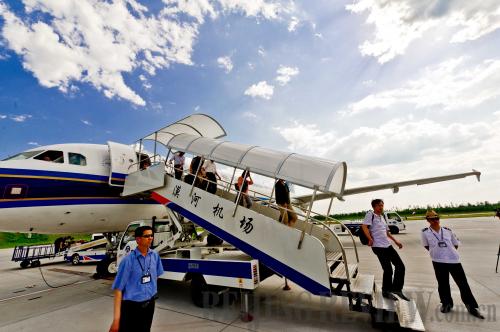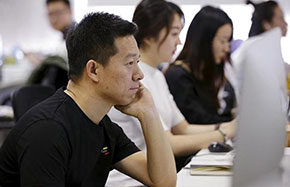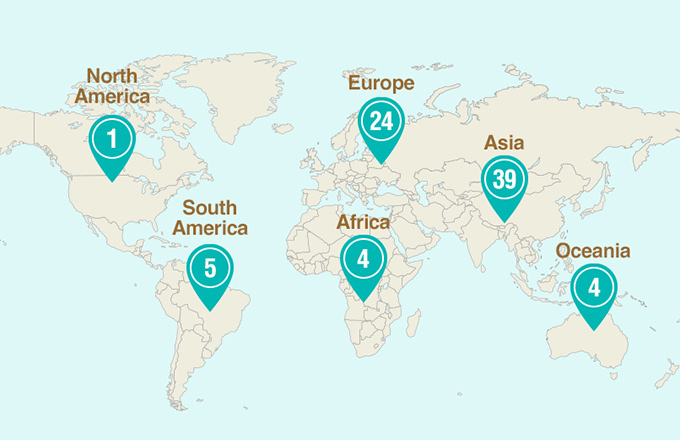Cutting back on red tape
|
 |
|
Passengers step off a plane at Mohe Airport, Heilongjiang province. Private enterprises are now allowed to invest in airport expansion without Central Government approval |
China has moved once again to cut the number of items that require Central Government approval, in a move some say will help create a more efficient and friendly environment for business and help boost economic growth.
On May 15, the State Council announced reforms of 133 items that require top-level approval, including rights on investment and production in the economy, which will be delegated to lower-level governments. Just 58 days after being elected, the new cabinet has heavily streamlined the central authority and delegated more powers to lower-level governments.
Two days before the cabinet announced its decision, Premier Li Keqiang said the government had three goals in mind for its streamlining reforms: to ensure economic growth, to facilitate changes in the country's growth model and to increase employment. He stressed that transforming the government at the very top is urgently needed for maintaining the healthy development of the economy.
Song Xiaowu, Vice President of the China Society of Economic Reform, says China is in a crucial period of economic development, whereby the economy is shifting from an export-oriented one to a consumption-driven one. Therefore, cutting back on Central Government red tape is quintessential during this time of economic transition. Gao Xiaoping, Executive Vice President of the Chinese Public Administration Society, says the changes will help break up monopolies and put more power in the hands of the market.
For economic growth
Why has the Chinese Government chosen to reduce red tape now?
Song says this is related to current conditions in the economy. After the 2008 global financial crisis, the Chinese economy became the first to bottom out, attracting global attention. However, its economic growth is beginning to be stagnant this year, and the recovery of the real economy is weak. It would be difficult for the Chinese economy to return to the days of 10-percent or even higher growth merely driven by investment, he says. A high growth rate is no longer a priority, as increasing employment and maintaining social stability have become top concerns.
"China must both ensure stable growth and improve the quality of growth. Hence it is particularly significant for the government to cut and ease administrative powers, which will encourage society and enterprises to be more creative in solving problems," said Song.
A series of reforms have already been carried out during the transformation from a planned economy to market economy. Currently, the most important reform is to change the way resources are allocated, with the market instead of the government playing the leading role. In a planned economy, the government decided all corporate affairs. Since the policy of reform and opening up was introduced some 30 years ago, especially after China's accession to the WTO in 2001, the Chinese Government has cut or eased many items subject to Central Government approval. But it wasn't nearly enough. Premier Li once saw a letter describing the over elaborate procedures for investment approval: If a company plans to invest in a project, it must go through approvals from 27 departments, which may take six to 10 months. This will not only dampen corporate enthusiasm, but may also cause a loss in business opportunities. Moreover, among the huge number of cases subject to approval by the ministries and commissions, some are difficult to comprehend. For example, private investment in urban rail transportation and the names of fishing vessels all need government approval, matters that should have been decided by companies themselves but were all monopolized by the government.
"Market access requires approval from the government. Without a government permit, no company can enter a sector even if it has capital. This restrains the vitality of economic growth," Song said.

























